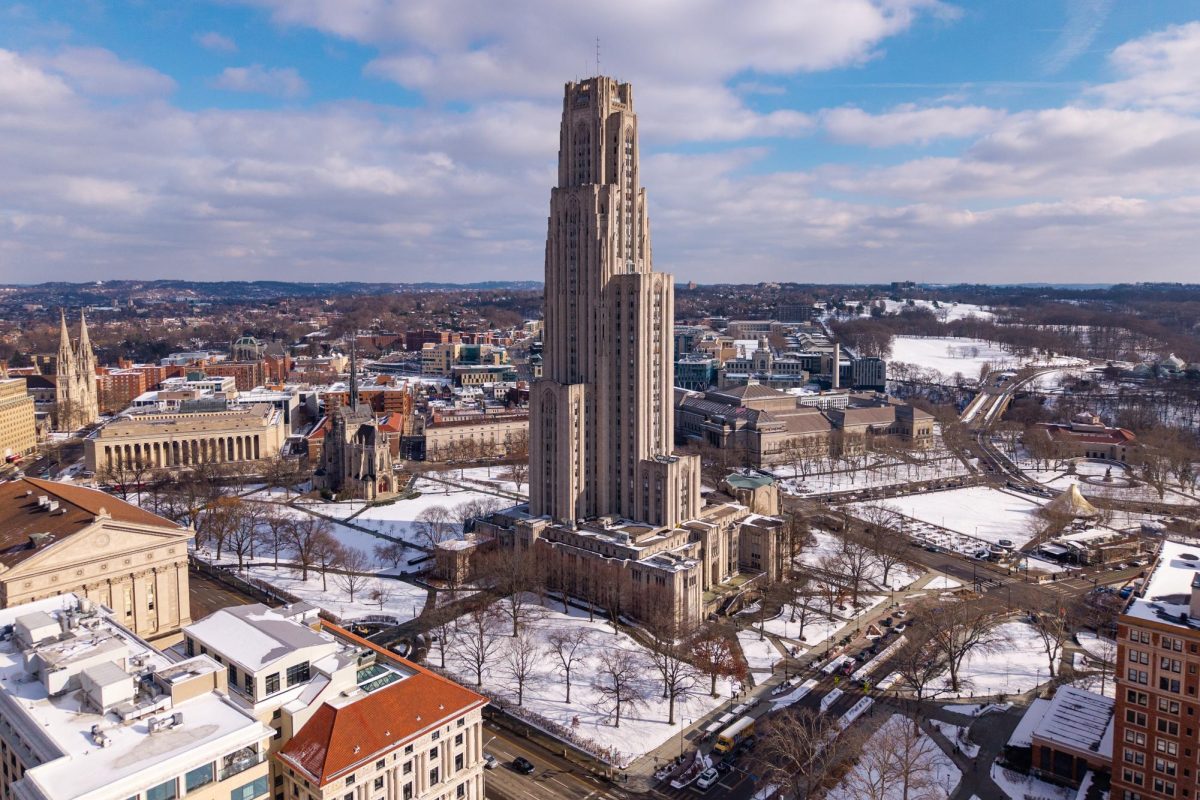Currently in its fifth year, a Pitt project has been helping neighboring Fayette County sustainably redevelop its once-thriving economy.
Through a 10-year-long partnership with Fayette County funded by the Appalachian Regional Commission, Appalachian Bridges to the Future aims to quell brain drain, the emigration of educated individuals, in the region. Pitt students and faculty involved with Appalachian Bridges to the Future shared their experiences working directly with local communities.
The project is divided into efforts regarding sustainability, political science, urban studies and business. The first five years devote time to researching the region, while the latter five years focus on implementation. In their work helping the county thus far, faculty and students have considered ideas such as applying for federal grants, running business fairs and talking directly with community members about their ideas for the county’s future.
Before World War II, Fayette County was an economically booming region because of its abundance of coal and coke, a fuel source used for smelting iron ore. Michael Edwards, president of the Fayette County Cultural Trust, said the county’s largest cities had “banks on every corner” and sidewalks “so crowded it was difficult to get through town on a weeknight.”
After WWII, steel production did not need coke any longer, causing the county’s economy and population to decline.
Michael Glass, assistant professor of sociology and director of the urban studies program at Pitt, is one of four faculty members working on the project. According to Glass, educated people started to migrate out of the region after the Second World War for better opportunities elsewhere.
“You’re a smart kid and you get into Pitt, you do a four-year degree, and then are you going to go back to Brownsville? Or are you going to say ‘peace out, I’m gonna stay in Pittsburgh,’” Glass said. “Most people are going to vote with their feet and head off to where they find more opportunity.”
Colleen O’Hare Barrows, a senior politics and philosophy and public and professional writing major, joined the project to address issues of sustainability in Fayette County. O’Hare Barrows said sustainable solutions were not the county’s first priority because they did not have the economic means yet to implement them.
“Sustainability still costs money,” O’Hare Barrows said, “and in some areas, it costs more than the status quo.”
To aid Fayette County’s economy, students created educational programs to help small businesses advertise through social media and laid the groundwork for a career fair to encourage entry-level positions for high school students.
On one of the group’s visits to a town in Fayette County, Olivia Seiler, a sophomore accounting major, saw that nearly every store had a hiring sign and decided to investigate this further.
“We talked to a pharmacy manager, and he said something that’s hard when you live in a more rural environment is that, in a city, you’d use Indeed or LinkedIn, whereas in rural areas, it’s more hard to get the word around,” Seiler said.
Katie Power, a junior economics and political science major involved in Appalachian Bridges to the Future, sent out a survey to all administrators in public schools and learned that trust in government was “voted pretty low.” Based on her survey, Power learned a lack of school funding and policies directed toward urban and suburban communities led to low civic engagement.
“A lot of the things that [people in Fayette County] vote on don’t have much of an effect on their communities,” Power said. “[Government policies] kind of leave out rural communities.”
Kyla Walker, a senior environmental studies major, got involved in the project through a Politics of Appalachia class. Through the class, Walker traveled to Fayette County and found the region lacked resources for young people to learn about their voice in government.
Walker said she believes many low-income families from small towns feel vitriol against social service programs because they work very hard for what they have and question why the government should “give it out to others,” a sentiment difficult for urbanites to understand.
“You have to be listening, asking, wondering why, and then bridging that gap,” Walker said. “We might be the liberals from the city, but we care about your issues and want to listen to what you have to say.”
According to Glass, the Pitt team’s job is to facilitate the work the county has already been doing by utilizing the University’s resources. Fayette County’s board of commissioners has been working on redeveloping the county through various facets such as placemaking, considering amenities to attract tourists and making the county a better place to live for permanent residents.
“We are not the saviors of Fayette County,” Glass said. “In community-based research, there’s nobody that knows the community better than the people that live there.”
Edwards said he thinks Pitt’s project is primarily about creating opportunities. In the future, he said he hopes these opportunities attract more people to travel to Fayette County.
“We’d want to see students thinking about staying in Fayette County or returning to Fayette County after getting their higher education degrees and know that there is more community pride,” Edwards said. “We would like to see more people coming to Fayette County to open businesses because there’s a lot of opportunity to develop.”


